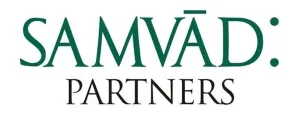INTRODUCTION
The Sexual Harassment of Women at Workplace (Prevention, Prohibition, and Redressal) Amendment Bill, 2022 ("Amendment Bill 2022") was introduced in the Rajya Sabha on December 8, 2023. Subsequently, the Sexual Harassment of Women at Workplace (Prevention, Prohibition, and Redressal) Amendment Act, 2024 ("Amendment Bill 2024") was introduced in the Rajya Sabha on February 2, 2024. Both the bills seek to rectify certain lacunae in the Sexual Harassment of Women at Workplace (Prevention, Prohibition, and Redressal) Act, 2013 ("POSH Act"), which was highlighted previously by the J.S Verma Committee in its Report on the Amendments to Criminal Law dated January 23, 20131 ("Report"). Notably, this Report was published prior to the enactment of POSH Act. In this article, we examine the proposed amendments to the POSH Act in light of the Report and provide our insights on the bills.
PROPOSED CHANGES TO THE AMENDMENT BILL 2022
A. Relevant authority
Currently, the POSH Act mandates every establishment having 10 (ten) or more employees to constitute an Internal Committee ("IC") to enquire into complaints raised by an aggrieved woman in the workplace. In cases where an establishment has less than 10 (ten) employees or where a complaint is against the employer himself, the POSH Act casts an obligation on the 'District Officer' to constitute a 'Local Committee' ("LC") who will then inquire into the complaint. While the Amendment Bill 2022 proposes to amend the nomenclature of the term 'District Officer' to 'District Judge', the duties and qualification criteria2 attached to this role remains unchanged. Optically, the term 'District Judge' has a different connotation in common parlance and means a judicial officer or a sitting district judge. The current qualification and the nomenclature under the POSH Act include a collector or a deputy collector, who do not form part of the judicial forum. This change in nomenclature, however, comes into perspective when viewed with the substitution of the LC with the 'Employment Tribunal' in the Amendment Bill 2022.
B. Substitution of LC with Employment Tribunal
The Amendment Bill 2022 proposes to amend Section 6 of the POSH Act, which provides for the 'Constitution and Jurisdiction of the Employment Tribunal'. The Employment Tribunal has the power to inquire into complaints received "from establishments where an IC has not been constituted or the IC or aggrieved person directly, and such complaints would be considered as legal trials".
The scope of the Employment Tribunal's power has expanded to take within its sweep any complaints directly addressed to the Employment Tribunal irrespective of whether an IC has been constituted in such establishment. The rationale for inclusion of such a wide power is emanating from the high rate of pending cases under Section 509 (word, gesture or act intended to insult the modesty of a woman) of the Indian Penal Code which questioned the efficacy of the present system, and the apprehension raised by the J.S Verma Committee in its Report, on the structure of the IC. The J.S Verma Committee in its Report recommended the need to set up an Employment Tribunal, and categorically stated that "the in-house dealing of grievances would dissuade women from filing complaints and may promote a culture of suppression of legitimate complaints in order to avoid the concerned establishment falling into disrepute". The Report also proposed that setting up of an Employment Tribunal would obviate the need to set up both an IC and LC. In our view, the proposed amendment does not completely do away with the IC thus, giving an aggrieved woman the option to choose the forum that she approaches, in case, she does not trust the institution of the IC. Further, the Amendment Bill 2022 does not outline the circumstances under which the complainant can file a complaint with the Employment Tribunal. However, the complaints raised before the Employment Tribunal would be considered as a 'legal trial'. While the Amendment Bill 2022 does not change the methodology of resolving complaints i.e., conciliation or inquiry, it is unclear what a legal trial would entail, as this is not defined. Moreover, as per the Amendment Bill 2022 read with the POSH Act, an aggrieved woman who approaches the Employment Tribunal is entitled to a legal trial, inquiry, or is given the option to conciliate the matter. The Amendment Bill 2022 is obscure with regard to the difference between a legal trial and an inquiry.
C. Comparative analysis of the composition of the LC and Employment Tribunal
The comparative table below sets out the composition and qualification criteria of an LC (as prescribed under the POSH Act) and Employment Tribunal (as prescribed under the Amendment Bill 2022), respectively:
| Constitution of LC | Constitution of Employment Tribunal |
| Chairperson (eminent women in the field of social work and committed to the cause of women) | Chairperson (retired female judge) |
| One member (women working in block, taluka or tehsil or ward or municipality in the district) | One member (women working in block, taluka, or tehsil in the district) |
| Two members (nominated from amongst such non-governmental organisations, associations committed to the cause of women, or a person familiar with the issues relating to sexual harassment wherein at least one should preferably have a background in law or legal knowledge, and at least one shall be a woman belong to schedule castes, schedule tribes, other backward classes, or minority notified by the central government) | Two members (nominated from amongst eminent sociologists wherein at least one should preferably have a background in law or legal knowledge), and at least one shall be a woman belong to schedule caste, schedule tribes, other backward classes, or minority notified by the central government) |
| Member ex officio (the concerned officer dealing with the social welfare or women and child development in the district) | One member (eminent social activists in the field of gender-based discrimination) |
| - |
One retired judge to be nominated from amongst the retired judges of district court |
| - |
One member (female advocate of the district court) |
Interestingly, the composition of the Employment Tribunal includes more personnel with a legal background. Our reading of the Amendment Bill 2022 suggests that this revision to the composition, is in light of conducting a legal trial which would require knowledge of legal interpretation. Additionally, the standard of proof or the manner in which a legal trial is conducted may be akin to courts rather than an in-house company driven inquiry. The Amendment Bill 2022 remains silent on whether the parties are permitted to be represented by legal practitioners at the Employment Tribunal. To this extent, the provisions of the Sexual Harassment of Women at Workplace (Prevention, Prohibition, and Redressal) Rules, 2013 ("POSH Rules") stipulate that the parties are not allowed to bring in any legal practitioner to represent them3. Given that the proceedings in an Employment Tribunal is considered to be in the nature of a legal trial, it remains to be seen if parties will be permitted to bring legal practitioners to an Employment Tribunal and the subsequent amendments to the POSH Rules, if any.
D. Timeline to raise a complaint
Notably, the Amendment Bill 2022 proposes to amend the 3 (three) month timeline to raise a complaint under Section 9 of the POSH Act and allows the aggrieved woman to raise a complaint "within a reasonable period of time". It leaves the Employment Tribunal or IC with the discretion to determine what constitutes as reasonable time with regard to the facts and circumstances surrounding the making of such a complaint and the personal circumstances of the complainant. This timeline can further be extended, if the Employment Tribunal or IC is satisfied that the circumstances were such that prevented the woman from filing a complaint within the said period. This extension is redundant since the Employment Tribunal or IC is not bound by any timeline under the Amendment Bill 2022. The proposed amendment is in line with the suggestion of the J.S Verma Committee in its Report. The Report went one step further leaving the determination of what amounts to reasonable, to be shaped / refined by judicial precedents.
E. Binding nature of IC's directions
The current provision of the POSH Act permits the IC or LC to provide its 'recommendations' to the employer, on the action to be taken against the respondent in case the allegation is proved or not proved. Further, in case the IC or LC arrives at a conclusion that the allegation is malicious, or the complainant has made the complaint knowing it to be false, or the aggrieved woman or any other person making the complaint has produced any forged or misleading document, it may make a recommendation to take action against the woman or person who made the complaint. Currently, the language of the POSH Act stipulates that the employer shall act upon the recommendation of the IC / LC. The judicial precedents surrounding this subject also leaves space for ambiguity – while certain cases say it is binding4, others state that if a recommendation were binding it would cease to be a recommendation and partake the character of a command, therefore a recommendation of the IC is to be seen as a recommendation, and the disciplinary authority has the authority to decide the next course of action after giving the recommendation due consideration5. The Amendment Bill 2022 proposes to amend the term 'recommendation' to 'direction'. This implies that the employer is bound by any direction made by the IC or Employment Tribunal and does not have the power to revisit the action taken. Further, the Amendment Bill 2022 has not amended the appeal mechanism prescribed under the POSH Act.
PROPOSED CHANGES TO THE AMENDMENT BILL 2024
A. Timeline to raise a complaint
The Amendment Bill 2024 proposes to amend the 3 (three) month timeline within which a complaint should be raised under Section 9 of the POSH Act, to 1 (one) year. It also seeks to omit the second proviso to Section 9 of the POSH Act, that permits the IC / LC to extend the timeline i.e., not more than 3 (three) months, for filing the complaint if it is satisfied that the circumstances were such that it prevented the woman from filing the complaint. The extension in the timeline may prove to be beneficial to an aggrieved woman, however, it may prove difficult for the IC/LC inquiring into the said complaint in procuring relevant evidence. Arguably, even witnesses may not provide a clear/detailed account of the alleged act of sexual harassment due to the extension of timeline.
B. Conciliation
Notably, the Amendment Bill 2024 seeks to withdraw the option an aggrieved woman had to opt for a conciliation process prior to an inquiry. The statement of objects and reasons provided in the Amendment Bill 2024, draws a distinction between contractual matters that can be conciliated in a fruitful manner versus conciliation in a sexual harassment matter which would amount to a compromise that undermines the dignity of a woman. Interestingly, this line of reasoning echoes the rationale provided in the Report. Further, the statement of objects and reasons also states that it fails to take into account the possibility of an aggrieved woman being influenced or coerced into conciliating the matter. While the removal of the option to conciliate seems progressive in letter, in practice, several women associate an inquiry being akin to a court proceeding and may not want to go down that route. This may deter an aggrieved woman from raising complaints at her workplace. Further, female employees in certain work environments may not be comfortable with opting for a full-fledged inquiry. Under the current regime, the parties can explore the possibility of conciliation and in case they fail to arrive at a settlement, the IC / LC is vested with the power to conduct an inquiry. Therefore, the scope to conduct an inquiry is not undermined / obliterated in case of failure to settle by way of conciliation.
CONCLUSION
The primary objective of the POSH Act is to provide an aggrieved woman with a comfortable forum that she may approach to redress the complaint. While the removal of the option to conciliate under the Amendment Bill 2024 may be ideal in spirit, it can deter a female employee from filing a complaint, with the removal of the option to conciliate. Further, the extension in timelines leaves room for ambiguity viz-a-viz collection of evidence and arraying witnesses for an inquiry.
Broadly, the Amendment Bill 2022, seems to be hinting at a more judicial process. This is evidenced by the composition of the Employment Tribunal which includes more persons with a legal background. The Employment Tribunal can redress any complaint that comes before it, thus, permitting for a more transparent redressal eco-system that gives an aggrieved woman the opportunity to choose a forum. While the process prescribed under the current regime, for conciliation and inquiry, is outlined in the POSH Act and the Handbook on the POSH Act dated November, 20156, it is unclear how a legal trial will pan out.
At this juncture, there is a lack of clarity on the intention of the legislature – since one bill proposes to limit the modes of redressal, by removing conciliation, while the other bill proposes to include an additional mode of redressal (Employment Tribunal). It remains to be seen how these provisions will practically unfold, if enacted. In the meantime, employers should brace themselves for a possible shift in the landscape of workplace sexual harassment laws in India.
Footnotes
1. https://adrindia.org/sites/default/files/Justice_Verma_Amendmenttocriminallaw_Jan2013.pdf
2. As notified under Section 5 - The appropriate Government may notify a District Magistrate or Additional District Magistrate or the Collector or Deputy Collector as a District Officer for every District to exercise powers or discharge functions under the POSH Act.
3. Rule 7(6) of the POSH Rules
4. Pradip Mandal vs. Union of India, W.P 2991 (W) of 2016
5. Institute of Hotel Management, Catering Technology and Applied Nutrition and Ors. vs. Suddhasil Dey and Ors. 2020 (4) SLR 437
The content of this article is intended to provide a general guide to the subject matter. Specialist advice should be sought about your specific circumstances.



